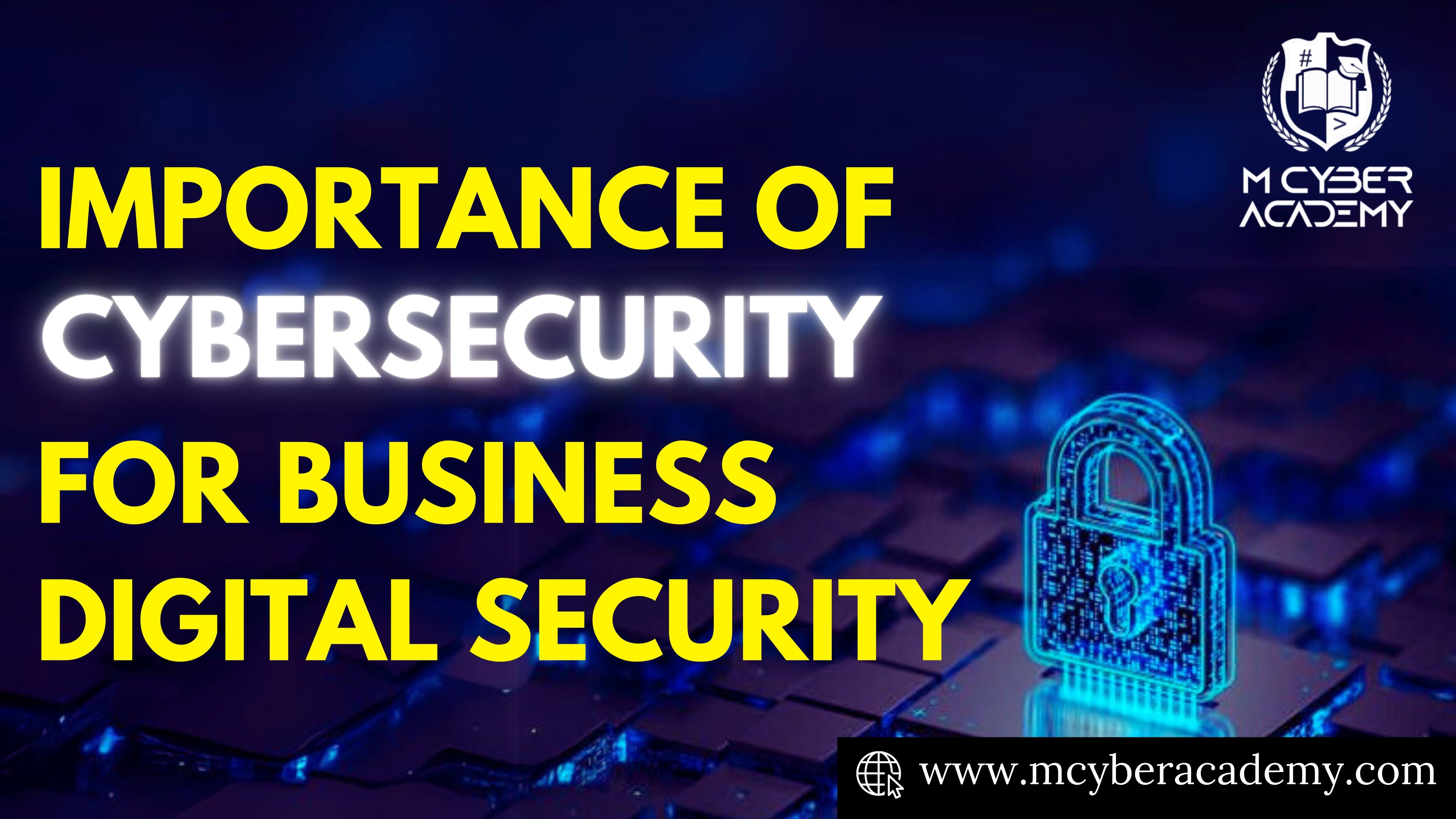
The Importance of Ethical Hacking and Penetration Testing for Business Digital Security
"Learn why ethical hacking and penetration testing are critical for businesses to protect sensitive data, prevent cyberattacks, and maintain customer trust."
The Importance of Ethical Hacking and Penetration Testing for Business Digital Security

As businesses become more reliant on digital systems, the need for robust security has never been greater. The increasing frequency and sophistication of cyberattacks pose a serious threat to organizations. One effective way to safeguard a company’s digital assets is through ethical hacking and penetration testing. These practices are essential for identifying weaknesses in digital infrastructures before malicious hackers can exploit them.
What Is Ethical Hacking and Penetration Testing?
Ethical hacking Ethical hacking, often called white hat hacking, involves the legal and authorized practice of testing and securing computer systems. Ethical hackers work to discover vulnerabilities in a network, application, or system, using the same techniques that cybercriminals might use—but for good. The goal is to help businesses stay ahead of potential cyber threats.
Penetration testing is a hands-on security assessment where ethical hackers simulate cyber-attacks to uncover vulnerabilities in a network or system. This allows companies to understand how a real cyberattack might unfold and provides them with the chance to fix weaknesses before they can be exploited by attackers.
Why Businesses Need Ethical Hacking and Penetration Testing
- Protecting Sensitive Data: Businesses today store vast amounts of sensitive information, including financial records, customer data, and intellectual property. If this data were to be accessed by cybercriminals, it could lead to major financial and reputational damage. Ethical hacking and penetration testing help businesses identify potential points of vulnerability and strengthen defenses to ensure sensitive data remains secure.
- Preventing Cyberattacks: Cybercriminals are constantly evolving their tactics, and without proactive security measures like penetration testing, businesses may be unaware of threats until it’s too late. By identifying and patching vulnerabilities before hackers can exploit them, businesses can reduce the risk of costly cyberattacks.
- Maintaining Customer Trust: In an age where personal data is highly valuable, customers expect businesses to protect their information. A successful cyberattack can damage a company’s reputation and lead to lost customer trust. By regularly conducting ethical hacking practices, businesses can assure customers that their data is secure, thus maintaining confidence in their services.
- Regulatory Compliance: Many industries have strict regulations regarding data security and privacy, such as GDPR or HIPAA. Failing to comply with these regulations can lead to fines and legal consequences. Regular ethical hacking and penetration testing ensure that businesses meet security standards, helping them stay compliant and avoid penalties.
How Ethical Hacking and Penetration Testing Help Businesses
- Identify Weaknesses: Through penetration testing, businesses can discover vulnerabilities in their network, software, or system that could potentially be exploited by hackers. These findings allow companies to reinforce their security measures.
- Reduce Risk of Data Breaches: By simulating real-world attacks, ethical hackers help businesses understand how data breaches might occur and how to defend against them. This minimizes the risk of a breach that could lead to financial losses or reputational damage.
- Enhance Cybersecurity Knowledge: Ethical hackers often work closely with businesses’ internal IT teams, sharing insights into best practices and how to prevent cyberattacks. This helps build a more robust security culture within the organization.
How to Learn Ethical Hacking and Penetration Testing
If you’re passionate about cybersecurity and want to help businesses secure their digital infrastructure, pursuing a career in ethical hacking is a great choice. Courses like certification in ethical hacking or white hat hacking courses can provide you with the foundational skills needed to become an ethical hacker. These programs cover important topics such as network security, risk management, and how to perform advanced penetration testing. To gain practical experience, you can also explore additional learning options like networking courses to understand the infrastructure you're securing, or a Linux course, as many ethical hackers use Linux to run security tools. Programming skills, especially in Python, are also valuable for automating tasks and developing security software. For those looking for specialized training, a cybercrime investigation course can teach you how to analyze cybercrimes and gather digital evidence.
For students who want to start early, cyber security courses after 12th are available, helping you build a strong foundation for a future in the cybersecurity field.
Conclusion
In today’s fast-paced digital world, ethical hacking and penetration testing are no longer optional—they are critical components of any business’s digital security strategy. By identifying vulnerabilities before they can be exploited, businesses can protect sensitive data, avoid costly attacks, and maintain trust with their customers. . Explore your path to a rewarding career in cybersecurity in 2025 , enrolling in a certification in ethical hacking or a white hat hacking course can open the door to a rewarding and essential field in the world of digital security.